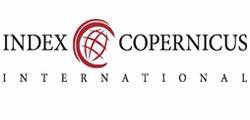Analisis Konsep Psikologi Organisasi dalam Konteks Perilaku Karyawan
DOI:
https://doi.org/10.61104/jq.v3i3.1891Keywords:
Psikologi Organisasi, Motivasi Kerja, Kepuasan Kerja, Komitmen OrganisasiAbstract
Psikologi organisasi memiliki peran penting dalam memahami perilaku karyawan yang menentukan keberhasilan organisasi. Kajian ini bertujuan untuk menguraikan keterkaitan motivasi kerja, kepuasan kerja, dan komitmen organisasi sebagai faktor kunci yang memengaruhi efektivitas dan keberlanjutan organisasi. Penelitian disusun dengan pendekatan kualitatif melalui studi pustaka, dengan penelusuran literatur nasional dan internasional yang kredibel. Analisis isi digunakan untuk menelaah tema, pola, dan hubungan konseptual yang muncul dari sumber akademik. Hasil kajian menunjukkan bahwa motivasi kerja yang terjaga dapat meningkatkan keterlibatan dan kreativitas, kepuasan kerja berkontribusi pada loyalitas serta menekan tingkat turnover, sedangkan komitmen organisasi memperkuat ikatan emosional dan perilaku ekstra-rol karyawan. Simpulan penelitian menegaskan bahwa integrasi aspek psikologis dalam kebijakan manajerial menjadi kunci dalam membangun sumber daya manusia yang produktif, adaptif, dan memiliki kesejahteraan psikologis.
Downloads
References
Allen, N. J., & Grisaffe, D. B. (2001). Employee commitment to the organization and customer reactions: Mapping the linkages. Human Resource Management Review, 11(3), 209–236. https://doi.org/10.1016/S1053-4822(00)00049-8
Amabile, T. M. (1996). Creativity in context. Westview Press.
Bakker, A. B., & Demerouti, E. (2007). The Job Demands–Resources model: State of the art. Journal of Managerial Psychology, 22(3), 309–328. https://doi.org/10.1108/02683940710733115
Bass, B. M., & Riggio, R. E. (2006). Transformational leadership (2nd ed.). Lawrence Erlbaum Associates.
Cameron, K. S., & Quinn, R. E. (2011). Diagnosing and changing organizational culture: Based on the competing values framework (3rd ed.). Jossey-Bass.
Colquitt, J. A., LePine, J. A., & Wesson, M. J. (2019). Organizational behavior: Improving performance and commitment in the workplace (6th ed.). McGraw-Hill Education.
Deci, E. L., & Ryan, R. M. (2000). Self-determination theory and the facilitation of intrinsic motivation, social development, and well-being. American Psychologist, 55(1), 68–78. https://doi.org/10.1037/0003-066X.55.1.68
Gibson, J. L., Ivancevich, J. M., Donnelly, J. H., & Konopaske, R. (2012). Organizations: Behavior, structure, processes (14th ed.). McGraw-Hill Education.
Grant, A. M. (2008). The significance of task significance: Job performance effects, relational mechanisms, and boundary conditions. Journal of Applied Psychology, 93(1), 108–124. https://doi.org/10.1037/0021-9010.93.1.108
Greenberg, J. (2011). Behavior in organizations (10th ed.). Pearson Education.
Greenhaus, J. H., & Allen, T. D. (2011). Work–family balance: A review and extension of the literature. In J. C. Quick & L. E. Tetrick (Eds.), Handbook of occupational health psychology (2nd ed., pp. 165–183). American Psychological Association. https://doi.org/10.1037/10474-008
Handoko, T. H. (2012). Manajemen personalia dan sumber daya manusia. BPFE-Yogyakarta.
Hapsari, R. D., & Wulansari, R. (2020). Hubungan antara kepuasan kerja dan Organizational Citizenship Behavior pada karyawan PT XYZ. Jurnal Psikologi Ulayat, 7(1), 99–114. https://doi.org/10.24854/jpu.
Hofstede, G. (2011). Dimensionalizing cultures: The Hofstede model in context. Online Readings in Psychology and Culture, 2(1), 1–26. https://doi.org/10.9707/2307-0919.1014
Hutapea, J., & Nuryanto, A. (2018). Pengaruh budaya organisasi dan motivasi kerja terhadap kinerja karyawan. Jurnal Ekonomi dan Bisnis, 13(2), 122–131.
Ivancevich, J. M., Konopaske, R., & Matteson, M. T. (2014). Organizational behavior and management (10th ed.). McGraw-Hill Education.
Judge, T. A., & Bono, J. E. (2001). Relationship of core self-evaluations traits—Self-esteem, generalised self-efficacy, locus of control, and emotional stability—with job satisfaction and job performance: A meta-analysis. Journal of Applied Psychology, 86(1), 80–92. https://doi.org/10.1037/0021-9010.86.1.80
Kreitner, R., & Kinicki, A. (2013). Organizational behavior (10th ed.). McGraw-Hill/Irwin.
Locke, E. A. (1976). The nature and causes of job satisfaction. In M. D. Dunnette (Ed.), Handbook of industrial and organizational psychology (pp. 1297–1349). Rand McNally.
Luthans, F. (2011). Organizational behavior: An evidence-based approach (12th ed.). McGraw-Hill Education.
Mangkunegara, A. A. A. P. (2017). Manajemen sumber daya manusia perusahaan (ed. revisi). PT Remaja Rosdakarya.
McShane, S. L., & Von Glinow, M. A. (2018). Organizational behavior: Emerging knowledge, global reality (8th ed.). McGraw-Hill Education.
Meyer, J. P., & Allen, N. J. (1997). Commitment in the workplace: Theory, research, and application. Sage Publications.
Newstrom, J. W. (2011). Organizational behavior: Human behavior at work (14th ed.). McGraw-Hill Education.
Organ, D. W. (1997). Organizational citizenship behavior: It’s construct clean-up time. Human Performance, 10(2), 85–97. https://doi.org/10.1207/s15327043hup1002_2
Robbins, S. P., & Coulter, M. (2016). Management (13th ed.). Pearson Education.
Robbins, S. P., & Judge, T. A. (2017). Organizational behavior (17th ed.). Pearson Education.
Schein, E. H. (2010). Organizational culture and leadership (4th ed.). Jossey-Bass.
Schermerhorn, J. R., Hunt, J. G., & Osborn, R. N. (2012). Organizational behavior (12th ed.). Wiley.
Sutrisno, E. (2016). Manajemen sumber daya manusia. Kencana Prenadamedia Group.
Twenge, J. M., Campbell, S. M., Hoffman, B. J., & Lance, C. E. (2010). Generational differences in work values: Leisure and extrinsic values increasing, social and intrinsic values decreasing. Journal of Management, 36(5), 1117–1142. https://doi.org/10.1177/0149206309352246
Yukl, G. (2013). Leadership in organizations (8th ed.). Pearson Education.
Downloads
Published
How to Cite
Issue
Section
License
Copyright (c) 2025 Zulqarnain, Sukatin, Ayu Gita Lestari, Dessy Sasmita

This work is licensed under a Creative Commons Attribution-ShareAlike 4.0 International License.











 This work is licensed under a
This work is licensed under a 